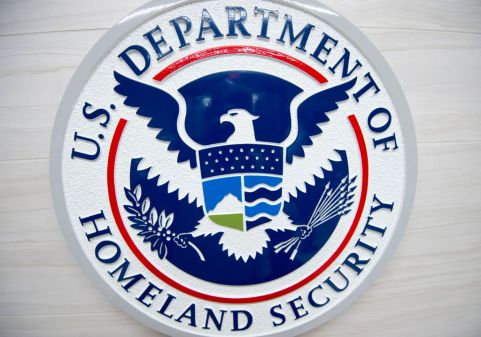GSA issues $2.5B satellite comms follow-on contract

The General Services Administration is building on its recent governmentwide contracting work for commercial satellite communications in a familiar-but-new $2.5 billion procurement vehicle.
GSA issued a request for proposals for its Complex Commercial Satellite Communications Solutions, or CS3 for short, last week. The contracts vehicle is meant to serve as a follow-on to — and in some aspects an evolution of — prior solicitations in the Future Commercial Satellite Communications Services Acquisition Program, jointly housed in GSA and the Defense Information Systems Agency. DISA serves the defense community for its SATCOM needs.
The new vehicle, the RFP states, aims to “create contracts as flexible and agile as possible to meet and satisfy the widely differing requirements of the Federal Government organizations both now and for the next decade and beyond.”
CS3’s predecessors — a pair of indefinite delivery/indefinite quantity contracts referred to as CS2, with one limited to small businesses — were developed to assist customers with custom end-to-end requirements. The pair had a total maximum value of $3.4 billion. Those contracts, combined with special designations for transponder capacity and plug-in subscription services on GSA’s IT-purchasing Schedule 70, comprised the full scope of the FCSA program until this RFP.
This follow-on vehicle, though, will focus more purely on “complex” solutions, or “customized engineered solutions to meet customers’ unique COMSATCOM needs,” according to the RFP, rather than standard end-to-end solutions, which GSA said in a March request for information could be pieced together with the Schedule 70 special item numbers. Complex solutions, per the RFP, could include any combination of “fixed satellite services and/or mobile satellite services, components, and/or service enabling authorizations and components and ancillary equipment such as terminals, teleports, terrestrial tail circuits, Subscriber Identity Module cards, and peripherals.”
Satellite communications play a critical role in the federal government on both the civilian and defense sides. Agencies working in isolated localities without wired or wireless network infrastructure and during emergency responses or other outages rely on satellite communications for continuity of operations. First responders during the Ebola outbreak of late 2014 were limited to satellite phones and spotty cellular coverage to communicate from the ground in West Africa. Likewise, American warfighters depend on satellite for communications in distant battlefields, although commercial satellite services are only used for routine or administrative purposes.
SES Government Solutions, a satellite communications provider on the CS2 vehicle, anticipates that CS3 will provide massive benefits for both the government and industry, in large part because GSA will evaluate the proposals on a best value basis “determined by the Highest Technically Rated Offerors with a Fair and Reasonable Price,” the RFP says.
“Government end-users should now be able to experience improved quality of service since CS3 prioritizes best-value as well as past performance over the lowest price,” said David Benning, vice president of business development for SES. “This helps ensure that government communications will be delivered using the top capabilities available in the market. It should also help ensure top quality by creating a pre-vetted group of the most qualified companies for the government to choose from.”
GSA declined to comment on details of the open CS3 solicitation, but according to the RFP, the vehicle will have a five-year base period, with options extending that up to a total of 10 years. The contract’s total cap is $2.5 billion, down significantly from the $2.6 billion ceiling on the CS2 vehicle and a $900 million ceiling on the small business version. Those contracts, opened originally in 2012, have a five-year period of performance, and 12 task orders have been issued under them.
Proposals for CS3 are due to GSA by Feb. 1.






